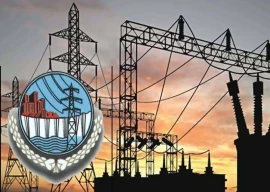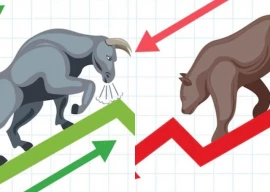
Once the country’s pride, the industrial giants – Pakistan Steel Mills, Pakistan Railways and Pakistan International Airlines, not to talk of cash-guzzling state-run power companies – see their losses mount and financial position weaken over time, triggering calls for government assistance and bailout.
The government too is in a difficult situation as state coffers deplete because of low revenue collection, high expenditures and a heavy cost of subsidies to inefficient power producing companies.
The country’s tax to gross domestic product ratio is around 9.3 per cent, one of the lowest in the world. On the other hand, according to government officials, subsidies to big state-owned companies amount to Rs250 billion a year.
Conditions at the Railways have deteriorated so much that it has run out of cash and could not pay salaries and pensions to its employees and pensioners, triggering protests. Trains have also got delayed for hours and poor passengers remained stranded at different stations.
Jolted by widespread people resentment, the government released Rs1 billion for the Railways and banks have now agreed to provide loans of Rs6.1 billion for repair of engines.
Pakistan Steel employees too are pressing the government to catch and recover money from those who looted the organisation’s wealth and brought it to a precarious situation. It has also been working without a full-fledged chairman with mounting losses.
In the case of Pakistan International Airlines, the prime minister has said that business as usual is not accepted and asked the national air carrier to improve corporate governance, services and finances. It is widely believed that the factors that contributed to the decline in the performance of state organisations include political appointments, leading to overstaffing, inept handling of affairs and corruption. Lack of monitoring of their day-to-day affairs gives some a free hand to misappropriate funds with the government only awakening when things start getting out of control.
According to analysts, political appointments from top to bottom plague state-run organisations as political governments place their own people to please them. These people lack capability to perform up to the mark while check and balance on the part of the government is also absent.
They say the culture of corruption and bribes should come to an end if the country wants to become prosperous and stand in the ranks of rapidly emerging economies like China, India, Brazil and Russia, which have been the focus of investor attention for the past many years, with billions of dollars coming in new investment.
“The performance of human resource should be improved and they should work on professional lines. Appointments should also be based on merit in order to hire those who are capable of handling affairs of the organisation in a professional way,” an analyst said.
Another company – oil marketing giant Pakistan State Oil – is also reeling from cash crunch as its receivables from power companies and other consumers keep piling up. According to the company, its outstanding amount has swelled to Rs161 billion while it has to pay Rs137 billion to local refineries and international fuel suppliers.
However, the company has been performing quite well and enjoys a dominant market share in oil supplies despite the weak financial position.
(the writer is incharge Business desk for the Express tribune and can be contacted at ghazanfar.ali@tribune.com.pk)
Published in The Express Tribune, November 7th, 2011.
COMMENTS (1)
Comments are moderated and generally will be posted if they are on-topic and not abusive.
For more information, please see our Comments FAQ







1731570357-0/elon-musk-(1)1731570357-0-270x192.webp)















Good article.
The tax-to-GDP ratio is only 8.7% of GDP!